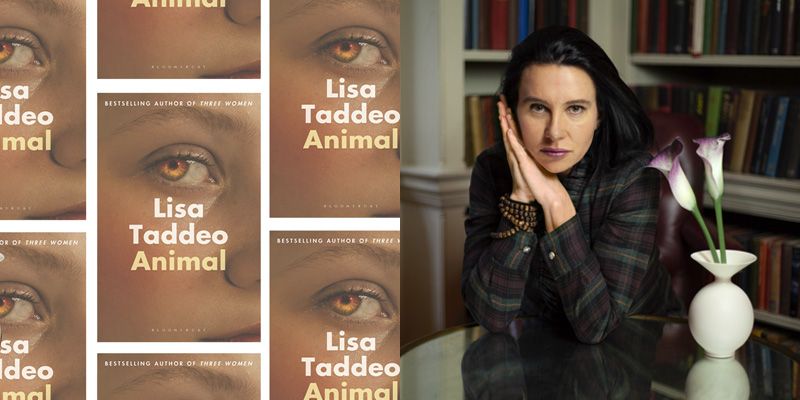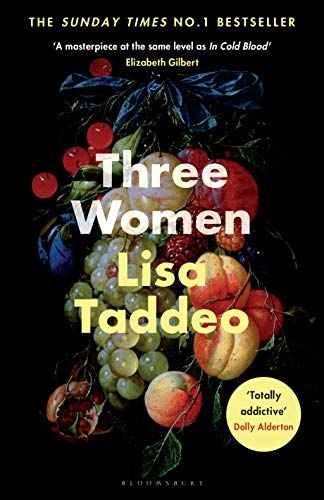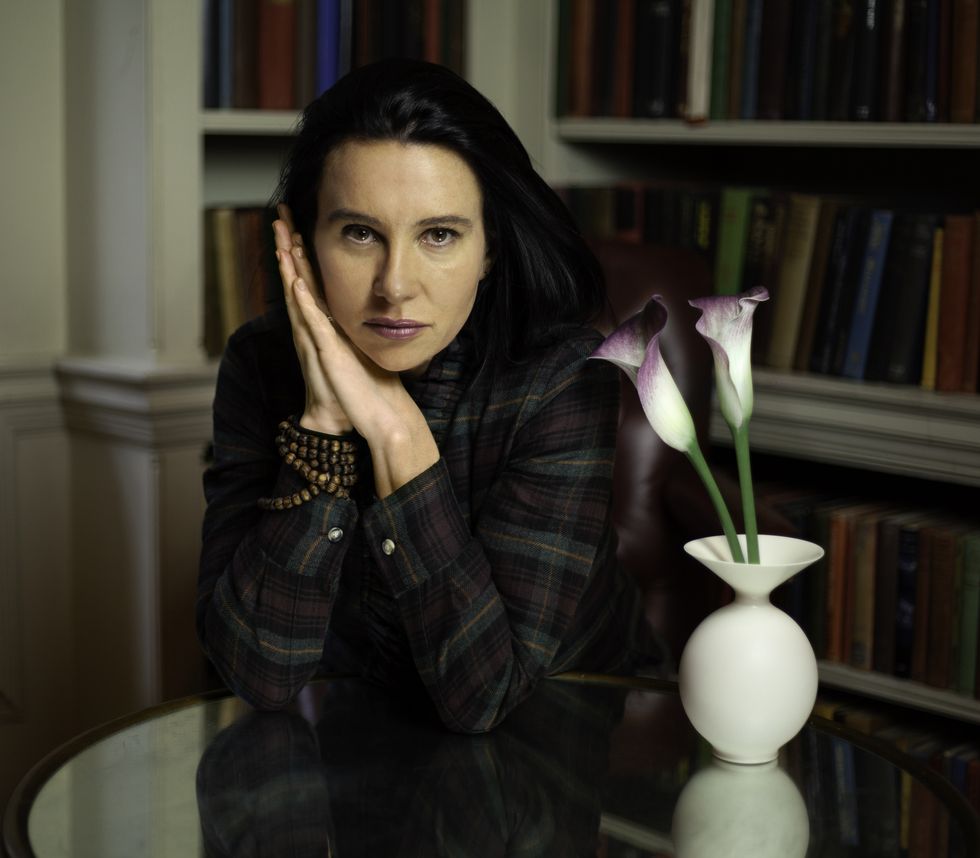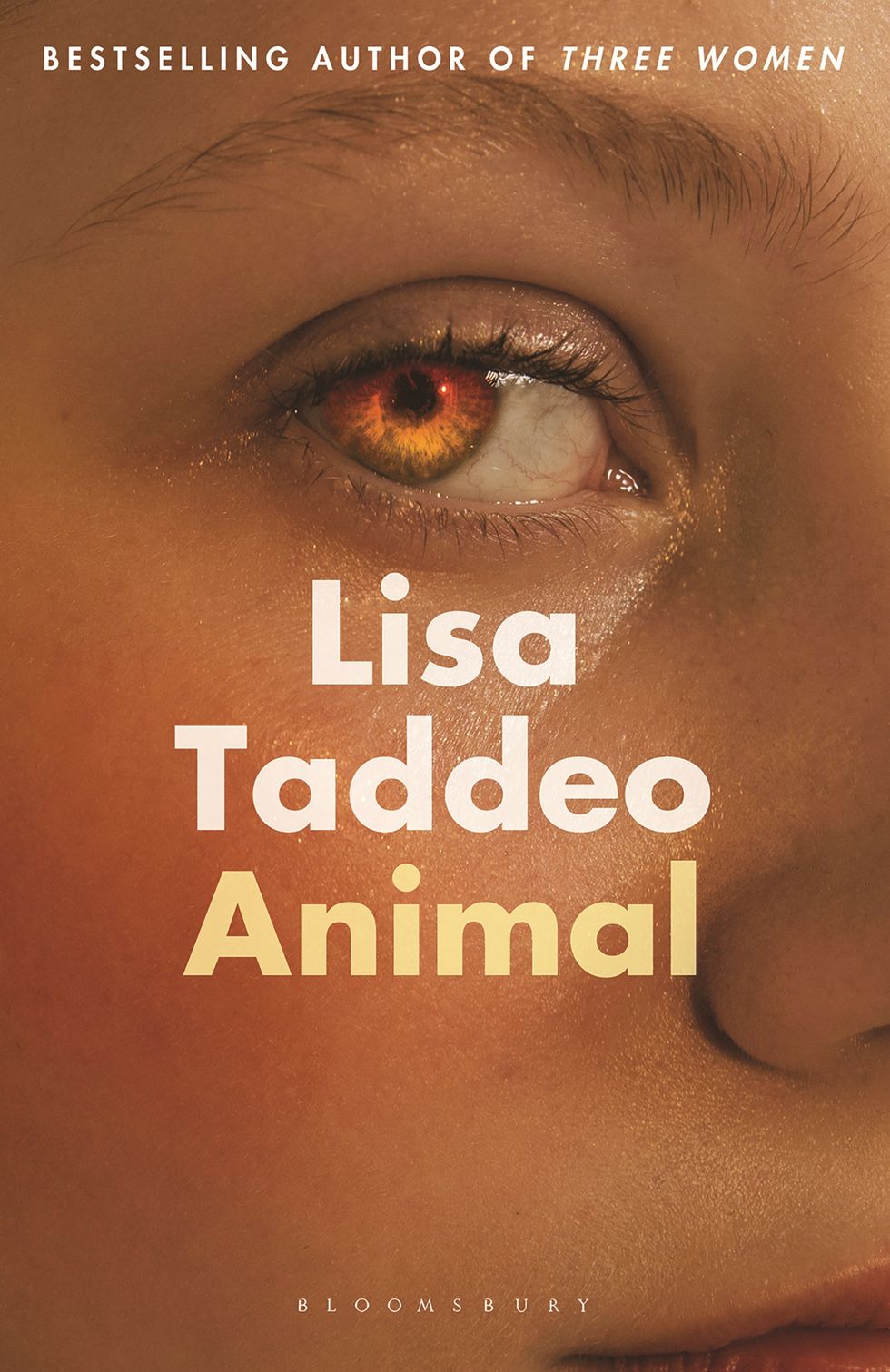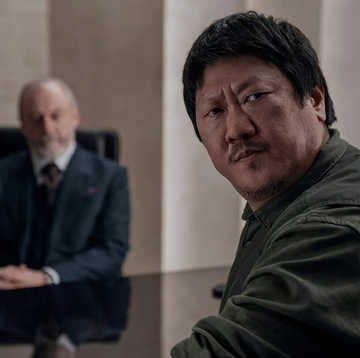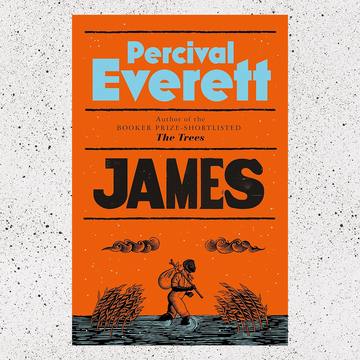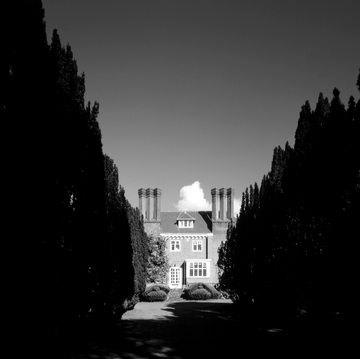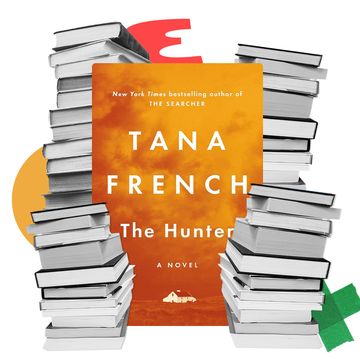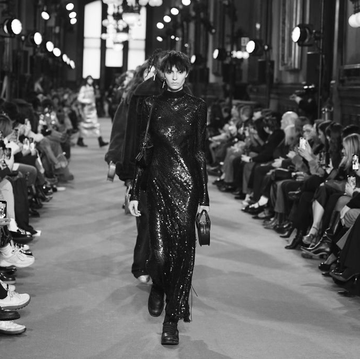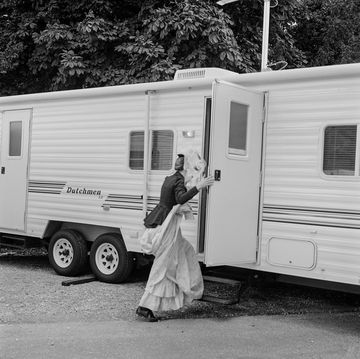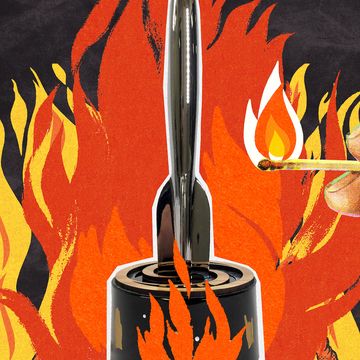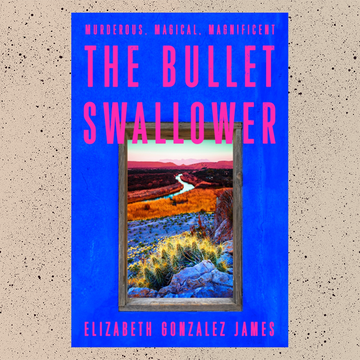The first sentence of Lisa Taddeo’s new novel contains a suicide, a warning shot fired in the direction of the reader. Protagonist Joan is eating a meal with a married man when Vic, the boss she has had a prolonged, repulsive affair with, comes in and shoots himself, the blood leaking out, “like liquor".
In Animal, blood and violence are everywhere, through rapes, miscarriages, and murder, but also in the ideal of the familial blood and the horrors which motherhood inflicts on women. “I think there’s a lot of similar themes in Three Women,” Taddeo says. “But there’s more anger in Animal.”
Taddeo wrote Animal during her MFA at Boston University, around the same time that she wrote her non-fiction best-seller, Three Women. The 2018 book is a forensic look at sex and desire through the lives of Maggie, Lisa and Sloane, compiled after Taddeo spent eight years listening to these women tell her things about their love lives that they had never been able to say out loud.
In Taddeo's debut novel, the animal grief makes of us and the way that it can mark us for life take centre stage. We follow Joan to the heat of Topanga Canyon where she moves into a stifling house surrounded by a coterie of strange men, a journey she has undertaken to find Alice, the woman she is obsessed with. As her relationship with Alice blooms, we delve into both her dark childhood and history with men, the different parts of her life becoming entwined as the heat rises.
Earlier this month, on a Zoom call from Connecticut where she lives, Taddeo spoke to Esquire about the reaction to Three Women, the high stakes of female friendships, and the stories we tell ourselves to metabolise pain.
When a book has the reception that Three Women had, I imagine there’s a sense of before and after. How did that level of success feel and could you sense how big it was while you were in the moment?
I was doing so much press that you almost lose the feeling of being on the ground with it. I felt it in different ways but not in the ways that would of made the most impact on me personally, because I didn’t see everyone on the train reading it. There were so many far-flung things that sounded so cool, like someone I hadn’t spoken to in years saying they found it in a little bookstore in Greece, but I never once saw someone reading it. I always wanted to go up to someone reading it and say, ‘I wrote that!’
Your new novel opens with a suicide, how does that set the stage for what is to come?
I don’t think writers that write shocking scenes want to shock so much as show you what the character needed in order to get up and out, and Joan needs something very incendiary to shake her out of her current state. I wanted the whole book to be contained in the first few paragraphs so that you know what you're getting into.
What was the seed of the story for you, was it Joan?
The first thing that really started it for me was the heat. I find the oppression of heat and not being able to cool oneself down to be a terrifying feeling. I wrote the first 80 pages or so in the third person so Joan’s voice didn’t come to be a part of it until I rewrote it in the first person.
I know biographically there are parts of you in Joan, like your mother being Italian and losing your father. Did you give her emotions you’ve felt too?
I think a lot of what is in Joan, the rage against men or other women, is really born out of grief. My grief helped to inform Joan’s, so while I didn’t lose my parents the way that Joan lost hers, a lot of the feelings that Joan has are feelings that I have had related to grief, so the grief in it is very autobiographical.
That really chimes with the title because there is something so animal about grief and how wild it makes you.
As much as Three Women was about desire and not being honest about that, I think grief is this other thing and it’s more that we don’t want to listen about grief, which makes people who are grieving feel really alone. I think it’s the animal parts of us that grief brings, that rage and pain that we feel when we are in one of those situations.
Joan chooses ‘depraved’ as the single word to describe herself. Was it important for you to have her show, as someone says to her later, “the parts of us nobody wants to admit to”?
One of my friends said to me that Animal had made her feel like she should embrace and take care of the darkest parts of her instead of hiding them and pretending they don’t exist. It doesn’t mean that if we say these things we are only that, just as if we show only our more polite self that is not who we are either. I’m really interested in the depravity of human nature, we can be happy and kind, angry and vengeful, I like to look at all of it together. I’m more concerned with the darker parts because I feel like we talk less about them.
There’s a moment where Joan talks about having sex with her boss Vic and the power in the performance of sex with an older man, which might sound like the opposite to finding a man repulsive. Do you write towards holding two conflicting ideas in your head at the same time?
There’s been a lot of ugly things I’ve had to deal with in my life and I think metabolising those things into something that is a learning experience is not lying about it, but saying it had to happen and this is what I learned from it. If a woman says she’s getting joy out of performing in a sense, then we think she couldn't feel sad about it.
I’m always so intrigued by the fact that we don’t allow each other to the space to tell one another what actually hurts us. We say, ‘This kind of rape is the worst, this is the second worst, now fit your experience into one of these’. It’s like, well wait, what if this didn’t bother me as much as that? We know we can’t say that, if you say something like that you’ll be run out of the feminist club. We are all affected differently by different things, the only thing we can really do is listen to how something makes us feel.
You’ve spoken about women who are “questionably employed as mothers”, and in the book Joan believes she is not worthy of motherhood after being damaged by what her mother does to her. Why do you think society is so terrified at the notion of a bad mother?
What’s so weird to me is that it’s one thing to not want to admit to your own lack of good mothering qualities, but it’s really wild to me that other people don’t want to hear about it. When I hear someone talking about something that scares me, I lean in and listen to know that I feel less alone. But a lot of us don’t want to hear it, like just hearing about it will give us a disease. I think it's really destructive that we do to each other as women.
There is a conversation between Joan and Alice that feels like the love scene of the book because she finds someone who she can finally unburden herself to.
Sometimes you start telling someone something and you can tell they start shutting down for whatever reason. That feeling is something I have felt and it was important to me that Joan has felt it her whole life. I know how hard it is to find people who listen, so it was important to have a character who only finds it this once. For me that’s exactly what it is, a love scene. She was able to enjoy her sex with those men after telling Alice about it, because it became real after this honest telling in a way that nothing else had been.
Joan says of Alice, “I was afraid in that way you can only be afraid in an early friendship with a woman.” Do you think the stakes can feel higher in female friendships than sexual relationships because the agenda is not there?
I think they can be more beautiful and also harder. I think with men, often in platonic relationships between heterosexual men and women, there’s this unspoken thing that is there even if you don’t want it to be there. There’s a complexity to female friendships that I find so rewarding when they are able to flourish. As I get older I’m constantly more impressed with my female friendships and the way that they’ve moved and changed.
I've seen articles calling Animal, "American Psycho for the #MeToo generation". Does that ring true for how you see the book?
I wasn’t looking to tell a story about someone going on a killing spree but I did want to tell a story about the complexity of feeling. I don’t know whether Bret Easton Ellis would have felt the same thing. I’m not setting out to write a thriller with all these dark things that happen, I’m using these darker moments to highlight how dark we can feel on the inside.
Animal is published 24 June
